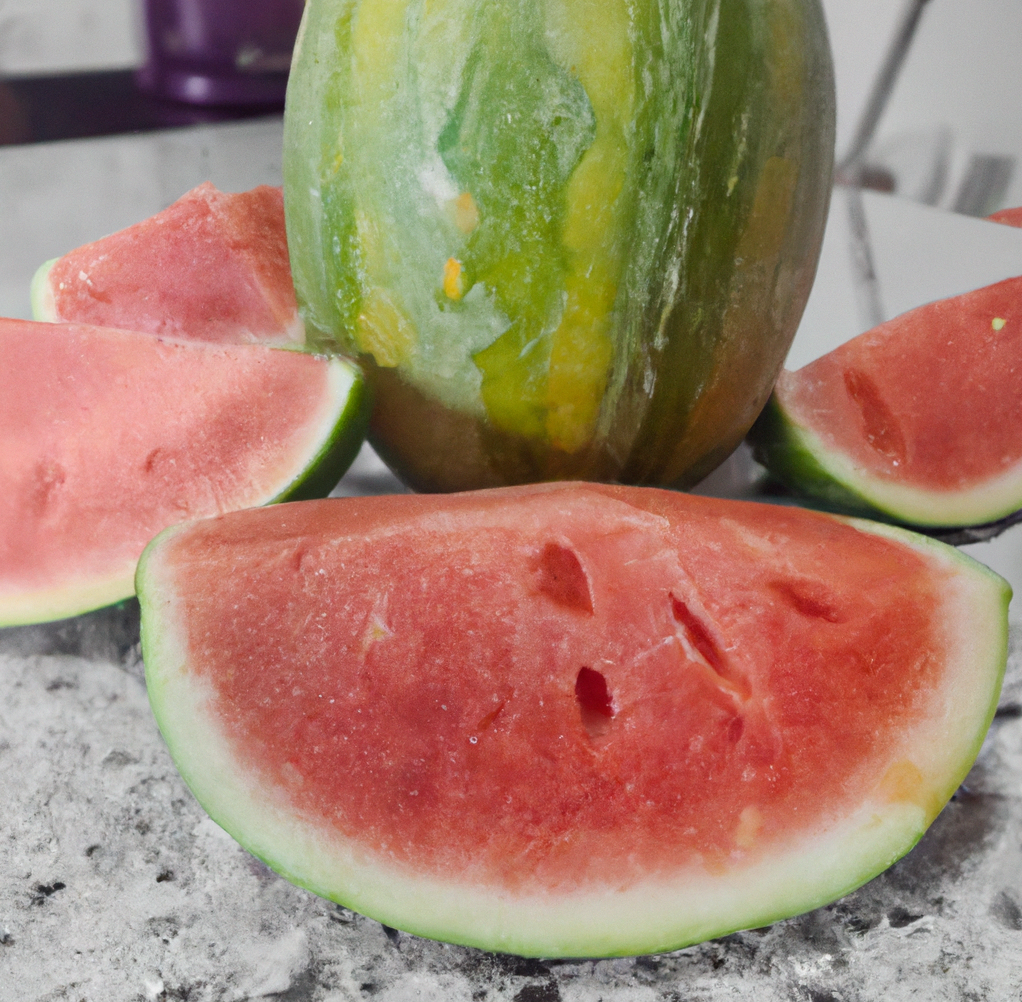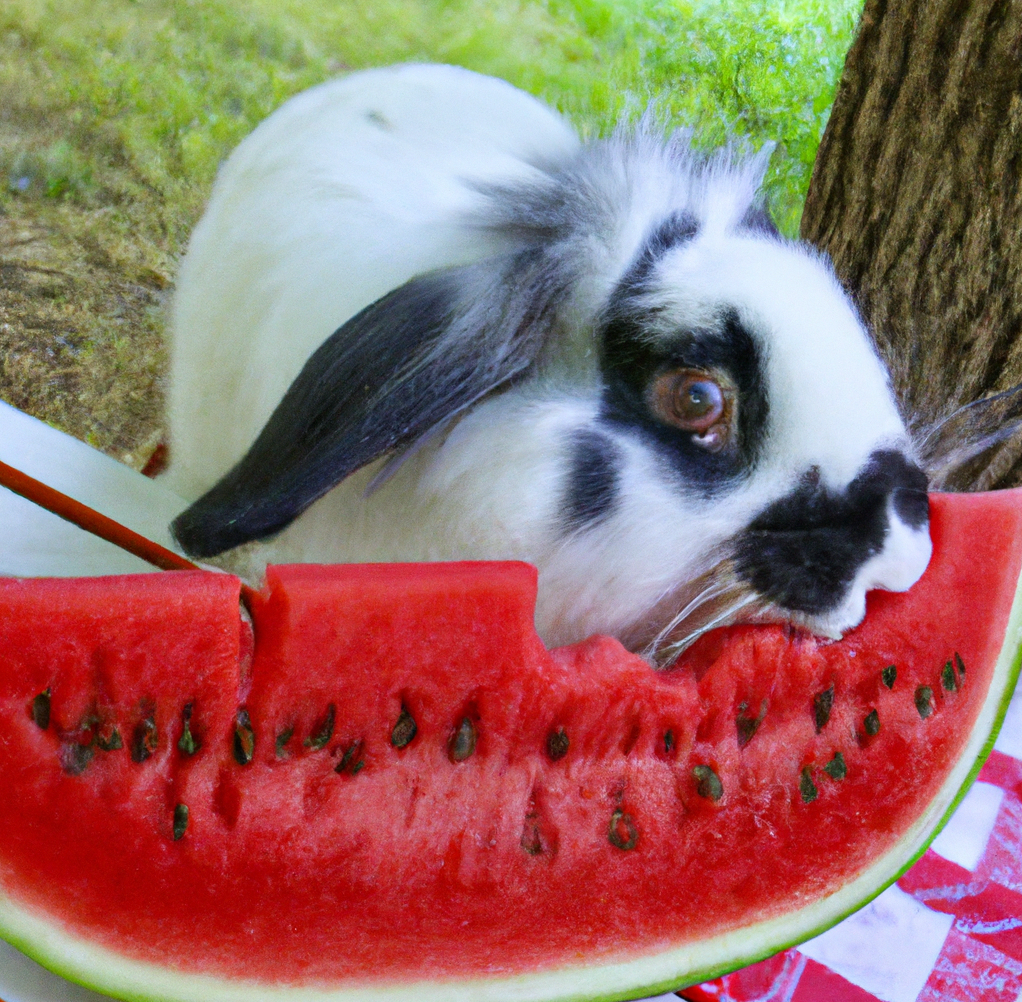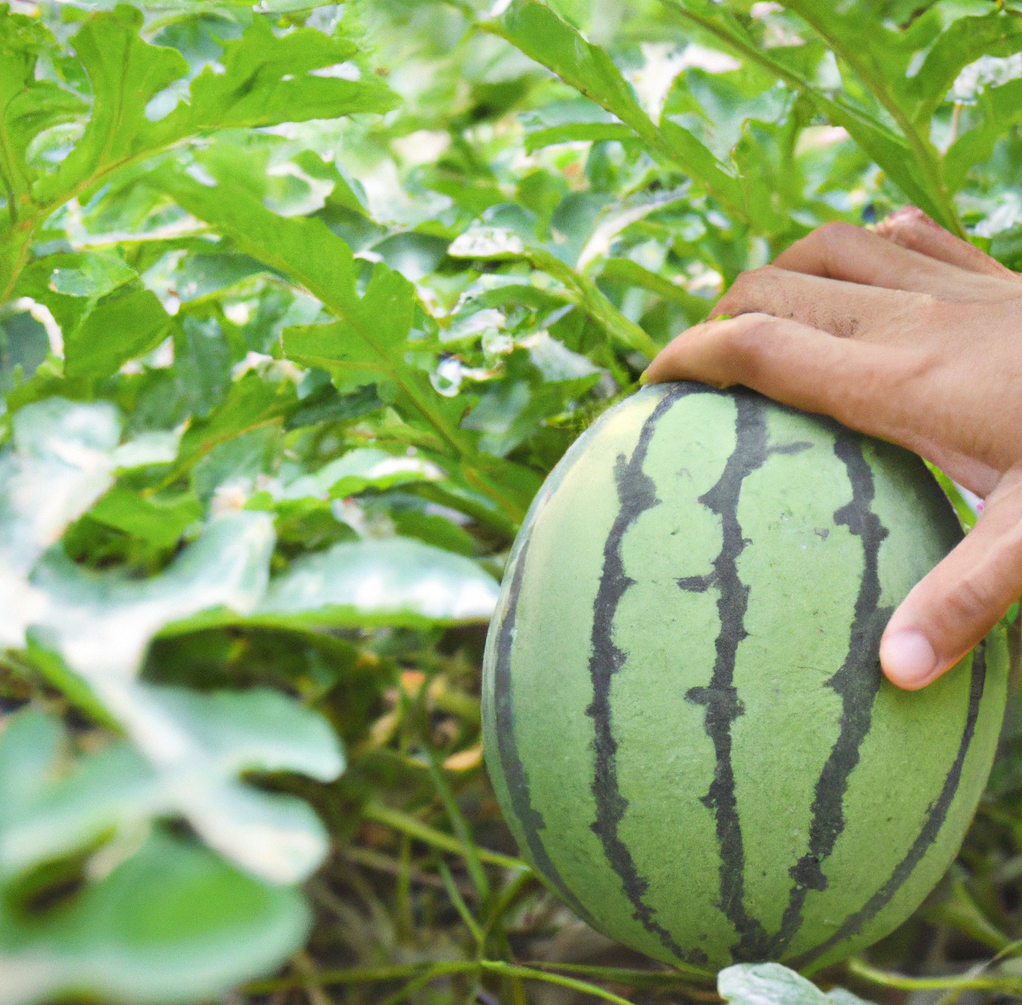Rabbits are adorable and lovable pets, and many people are curious about what they can and cannot eat. Watermelon is a popular summertime fruit, and many people wonder if rabbits can eat it. While watermelon can be a healthy snack for your rabbit, there are a few important things to consider before feeding it to your furry friend. In this article, we will discuss the potential benefits and risks of feeding watermelon to your rabbit, as well as how to feed it correctly.
Is Watermelon Safe For Rabbits To Eat?
Yes, watermelon is safe for rabbits to eat. This fruit is rich in water and vitamins and is low in calories, making it an excellent snack for rabbits. The flesh, rind, and seeds of watermelon are all safe for rabbits to consume. Rabbit owners should, however, practice moderation when feeding watermelon to their furry friends. Eating too much of the fruit can lead to digestive issues and diarrhea.
To ensure that watermelon is safe for the rabbit, owners should always wash it thoroughly to remove any dirt or pesticides. Additionally, they should cut the fruit into small pieces to avoid choking. The seeds should be removed to prevent any blockages in the rabbit’s digestive system.
Watermelon is a refreshing and hydrating snack that can be a great occasional treat for rabbits. However, it should not replace a balanced diet of hay and pellets, which are essential for a healthy rabbit.
What Nutrients Does Watermelon Provide To Rabbits?

Watermelon is an excellent source of nutrition for rabbits and provides them with a range of vitamins and minerals. Watermelon is a rich source of vitamins A, B, C, and E, as well as potassium, magnesium, and iron. It also contains lycopene, a powerful antioxidant that can help protect cells from damage due to free radicals.
Watermelon is a great source of dietary fiber, which is important for healthy digestion in rabbits. The high water content in watermelon can also help keep rabbits hydrated. Additionally, watermelon is low in calories, which is beneficial for rabbits as they are prone to obesity when given too many treats.
Overall, watermelon is an excellent source of nutrition for rabbits and provides them with essential vitamins and minerals, dietary fiber, and antioxidants. It can help to keep them hydrated, and the low-calorie content makes it a healthy and tasty snack.
How Much Watermelon Should I Feed My Rabbit?
It is important to be mindful of the foods that you feed your rabbit. Watermelon can be a great snack for rabbits, however, it should not be the main part of their diet. Watermelon should be fed in moderation, as it is high in sugar and can cause digestive issues if too much is given. Generally, rabbits should only be given a few small pieces of watermelon at a time. It is important to be sure that the seeds and outer rind of the watermelon are removed, as these can be difficult for rabbits to digest. Additionally, the watermelon should be given as a treat and not as a meal replacement. A balanced diet of hay, fresh vegetables, and a small amount of pellets is the best way to ensure that your rabbit is getting all the nutrients they need.
Are There Any Potential Health Benefits For Rabbits Eating Watermelon?
Watermelon is a popular summertime treat that can provide many health benefits to humans. However, did you know that watermelon can also benefit the health of rabbits? Eating watermelon can be a healthy and tasty treat for your pet rabbit, and there are many potential health benefits associated with the consumption of this delicious fruit.
Watermelon is an excellent source of essential vitamins and minerals. It is a good source of vitamins A, B6, and C, as well as potassium, magnesium, and fiber. These vitamins and minerals help to keep rabbits healthy and can aid in the prevention of certain diseases. Vitamin C, for example, helps to strengthen the immune system, while fiber aids in digestion and can help to prevent gastrointestinal problems.
Watermelon is also a great source of hydration for rabbits. The high water content of this fruit helps to keep rabbits hydrated and can help to prevent dehydration during hot summer months. Additionally, the high water content helps to keep rabbits cool, which can help to reduce stress.
Watermelon also contains lycopene, an antioxidant that can help to reduce inflammation and oxidative stress. This can help to reduce the risk of certain diseases and improve overall health.
Finally, watermelon is a good source of energy for rabbits. The natural sugars in the fruit provide a quick source of energy that can help to keep your pet rabbit active and alert.
Although watermelon is a healthy treat for your pet rabbit, it should not be given in large amounts. Watermelon should only be given in moderation and should never replace a regular diet of hay, fresh vegetables, and pellets. Additionally, the seeds should be removed before feeding watermelon to your pet rabbit.
In conclusion, watermelon can be a healthy and tasty treat for your pet rabbit and can provide many potential health benefits. However, watermelon should only be given in moderation and the seeds should always be removed before feeding.
What Are The Risks Of Giving My Rabbit Too Much Watermelon?
Watermelon is a sweet, juicy fruit that is a popular treat for many rabbits. While it is safe for rabbits to eat, it is important not to give them too much watermelon due to several potential risks.
Excessive amounts of watermelon can cause digestive upset in rabbits, resulting in bloating, gas, or diarrhea. The high water content of the fruit can also lead to an imbalance of electrolytes, or minerals that are essential for the proper functioning of the body. This can cause the rabbit to become dehydrated and may even lead to renal failure if left unchecked.
The high sugar content of watermelon can also be cause for concern. Too much sugar can lead to weight gain and obesity, as well as dental problems. Additionally, watermelon can cause a spike in blood glucose levels, which is especially dangerous for diabetic rabbits.
Finally, it is important to note that the seeds of watermelon can be a choking hazard for rabbits. Therefore, it is important to remove the seeds before feeding the fruit to your rabbit.
In conclusion, while watermelon is a safe treat for rabbits, it is important to feed it in moderation and remove the seeds before feeding. Doing so will help ensure that your rabbit stays healthy and happy.
What Alternatives Are There To Feeding Watermelon To Rabbits?

When it comes to feeding rabbits, watermelon can provide an enjoyable snack for them. However, there are many other healthy and nutritious alternatives to consider that can provide a balanced diet.
For instance, vegetables such as carrots, lettuce, and kale are all safe to feed to rabbits. Carrots are especially beneficial as they are a great source of vitamins and minerals, including fiber and calcium. Leafy green vegetables like lettuce and kale also provide essential vitamins and minerals, while also containing fiber to help with digestion.
Fruits such as apples, apricots, and bananas can also be fed to rabbits. Apples and apricots are packed with vitamins and minerals, while bananas contain potassium and magnesium.
Grains, such as oats and wheat, are also a great source of nutrition for rabbits. Oats provide dietary fiber, while wheat is a good source of carbohydrates and proteins.
Finally, hay is an essential part of a rabbit’s diet, as it helps them to grind their teeth down and provides them with essential fiber. It should be offered to rabbits on a daily basis.
In conclusion, while watermelon can make an enjoyable treat for rabbits, there are many other alternatives that can provide a balanced diet. These include vegetables, fruits, grains, and hay.
Conclusion
In conclusion, rabbits can eat watermelon, but it is important to feed it in moderation and be mindful of the seeds. Watermelon is an excellent source of hydration, vitamins, minerals, and dietary fiber for rabbits, but it should not be the only food source in their diet. It is recommended to provide a variety of healthy treats to supplement their diet and ensure they are getting the proper nutrition they need.

